Plants vs. Pharmaceuticals
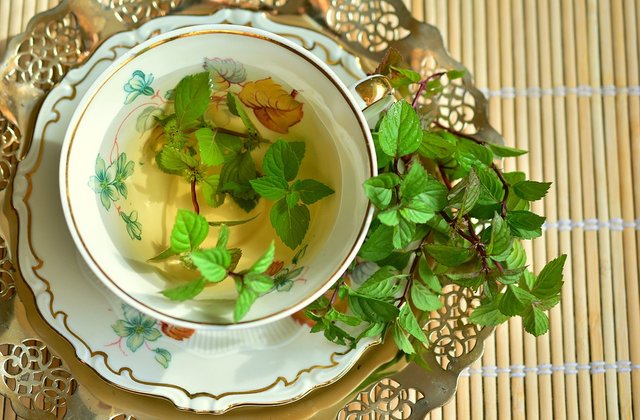
”I rather stick to my herbal medicine! Plants are so much safer than those drugs Big Pharma sells us to make us even sicker!”
How many times have I read this, or a variation of it, in the comments of one of my medical posts? How often have I read it online, in chat rooms, in Facebook comments, in every place where people gather. And I get it, it’s easy to mistrust companies that earn their money because people get sick. But as a biology student, a future scientist and someone interested in medical research, I see the other side too.
I see how my professors fight to have money for their research, be it liver cancer, yeast-based vaccinations or dementia. I see the Ph.D. students slave away in the laboratories, see them feeding, weighing and checking individual lab mice. I see them train bees to gain insight into how memory works.
Sure, someone who produces medication for profit isn’t doing it only because they care so much about people, but in the end, the money is needed for further research. Do you know how much lab equipment costs? How expensive the chemicals needed are? And don’t forget that the researchers need money to live too. All this still doesn’t justify the sometimes ridiculously high drug prices, especially in the USA, but it at least shows why the medicine can’t be for free.
Now to the actual question, why can’t we just chew some herbs like our ancestors did? Why do we have to isolate and refine everything and then press it into pills? Surely, it would cut a lot of the costs to just grow the herbs? @suesa
Aside from the fact that growing that many plants would take up space we need for food production, it’s a lot easier to distribute pills. They don’t go bad as easily. But more importantly, the amount of active substances is actually controlled.
Go to a store and buy two apples. Bite in the first one and chew. How does it taste? Now bite into the second one. Does it taste exactly the same? How about the density? Is it softer than the first apple? Slightly harder?
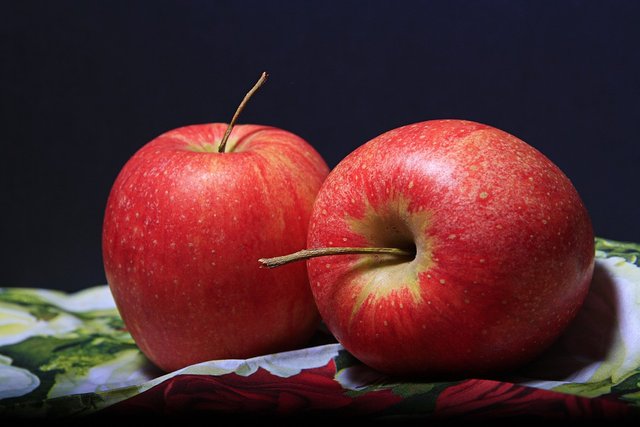
I’d be surprised if you had grabbed two apples that are exactly the same. Bonus points if they’re not commercially produced but from a small farm or something. It’s very unlikely that the two apples contain exactly the same amount of sugars and acids. And the same applies to medicinal plants.
Moreover, many plant-derived chemicals are actually deadly if you get them directly from the plant they’re in.
Atropine is generally used to treat specific kinds of pesticide poisonings or extremely slow heart rates. Do you know where it’s from? The plant is called Atropa belladonna but maybe you know it better as deadly nightshade. You shouldn’t eat the berries of A. belladonna, as the atropine contained in it can not only slow your heart rate but also stop your sweating and breathing.
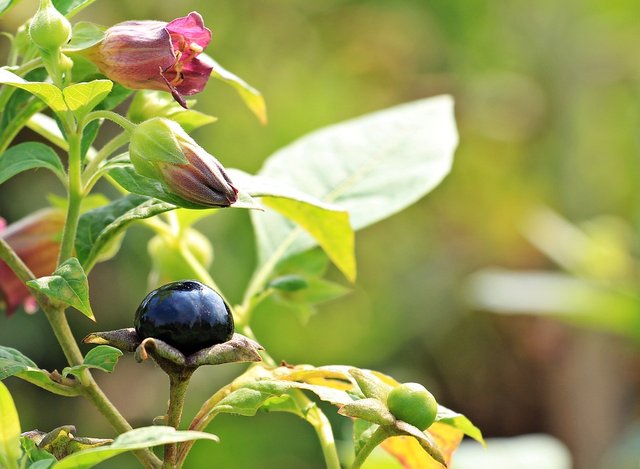
Want something to possibly treat cancer with? Colchicine might be a promising (don’t laugh) candidate for that because it interrupts cell multiplication. But wait, this kind of cells don’t just exist in tumors, right?
Colchicum autumnale, known as meadow saffron, can be easily confused with Allium ursinum (wild garlic or bear leek) and if you eat it, it induces vomiting and, depending on the degree of your poisoning, death. Fun fact: There is no antidote yet!
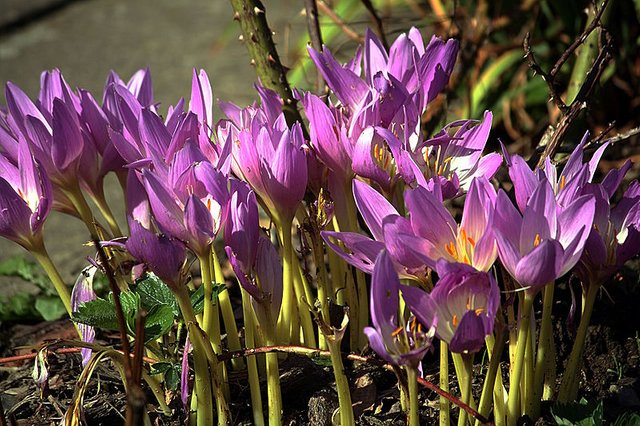
By Hedwig Storch
Wait, that wasn’t fun …
One more candidate to treat cancer (that’s already being used) is Taxol, which is called Paclitaxel in its natural form. It’s produced by the Pacific yew, along with a bunch of other alkaloids (the name of this group of chemicals). Paclitaxel isn’t the chemical that will kill you, the other alkaloids contained in this plant will. But we’re talking about herbal cures here, you don’t get isolated substances! All or nothing!
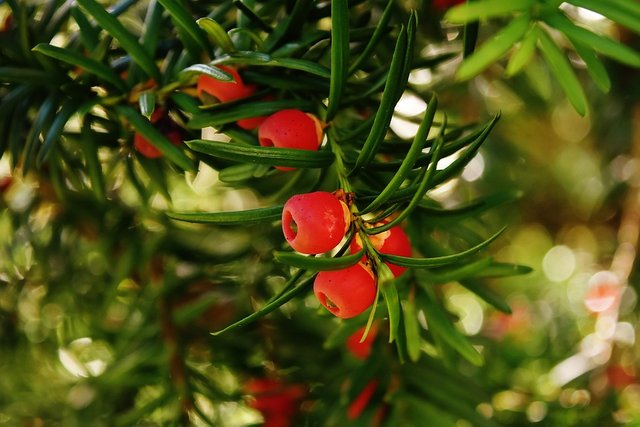
Now before you start typing your comment in outrage (if you planned on doing that I’m actually impressed you got as far as this sentence! Thanks for reading before commenting! Include the word “Pumpernickel” in your comment to get a 15% instead of 10% upvote! Only applies to comments I’d usually upvote.), let me say that I don’t generally oppose herbal treatments.
Yes, you heard me right. After everything I just said, I don’t think taking certain herbs for certain illnesses is wrong.
But
Not everything can be treated with plants. Not all plants that contain helpful substances can just be eaten/cooked/made into tea. It’s often necessary to refine them to make them safe. If you’re not very invested into the topic and don’t have knowledge that isn’t funded on stuff a random person on the internet once said (and yes, I am including myself), you shouldn’t just go ahead and pick whatever plant you think is right for the given situation.
There is a reason people study this shit for years. You wouldn’t ask a pharmacist to build a car. Don’t ask the car mechanic to tell you what you should take for your severe ear infection. They’re specialized for a reason.
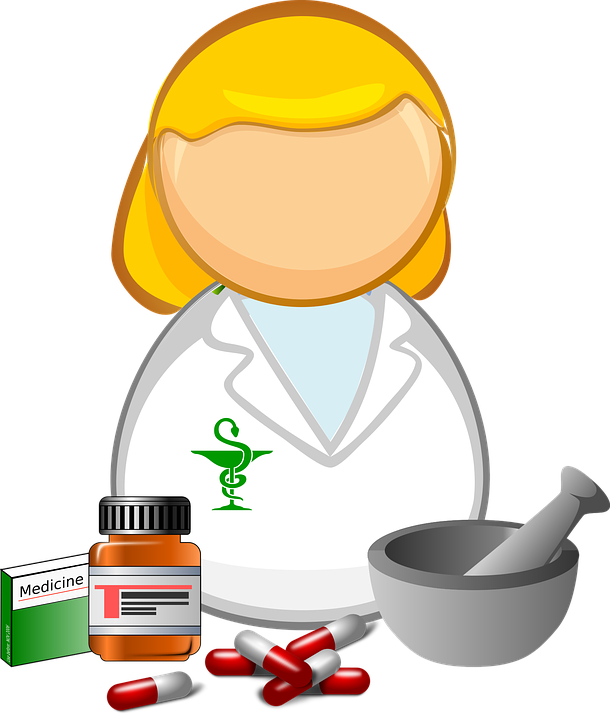
Additionally
Even when you are 100% you’re doing the right thing and taking the correct herbs, double check if they’re as safe as you think. There was an analysis in the USA of 251 Asian herbal products. 36 contained arsenic, 35 contained mercury, and 24 contained lead. You can kill yourself by taking these.
And if you’ve found a safe source for your safe herb, check for interactions with herbs and drugs you are already taking. Gingko and blood thinners combined are dangerous. So is Primrose Oil when you have epilepsy.
So please, be careful and think before taking any “miracle cure” (Read @mobbs ‘ latest piece on Chinese Pseudoscience) that’s supposed to be safe because it’s not coming from Big Pharma. After all, the person selling it to you is taking money for it too.
Be smart. Get a reliable doctor whom you trust. Take plants and herbs when appropriate but also take drugs when appropriate. There’s a reason we developed modern medicine.
Sources:
Dietary supplements and herbal medicine toxicities—when to anticipate them and how to manage them
Herbal medicines can be lethal, pathologist warns
Pictures taken from pixabay.com
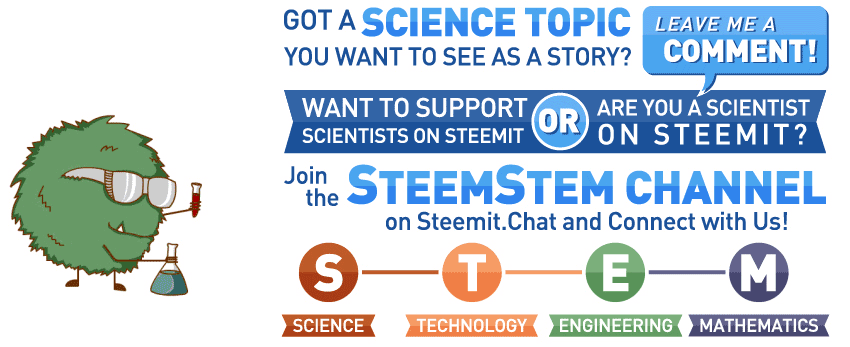
It's funny how we were just talking about the evils of modern medicine in chat, and now you've just posted this! :)
As a person with many libertarian-style views, I'm often confronted with a lot of assumptions that I believe certain things. There seem to be many fringe beliefs that mesh well with a general distrust of centralised authority, and one of them that comes up a lot is alternative medicine in general.
Treat your diseases with herbs and homeopathy! Cure your cancer with algae smoothies! Give birth at home miles away from medical attention! Vaccines cause autism! Breast is best! (Okay, they're actually right about that last one. At least, I think they are.)
I feel a bit like the odd one out sometimes, retaining my trust in all this "established" science and medicine when I distrust so many other things people take for granted... but I think it might be the decentralisation factor that makes it different for me. When scientists sponsored by entirely different entities spread across the entire world agree on something, you should probably give a bit of credit to what they have to say. If there's any doubt about a subject, people are out there talking about it, very much in the open, and the truth will come out sooner or later.
About the other thing: I don't like pumpernickel very much. Always preferred rye... especially toasted, with eggs. Mmm. Rye toast.
Eugh. I hate it when anti-vaxxers preach this sentiment. It's a claim that's based on refuted evidence, but instead of taking that refutation at face value, for some reason it's assumed to be a massive conspiracy by big pharma. It makes discussion pointless, because their facts are not the same as your facts.
Sometimes I just have to shake my head at people who won't apply Occam's Razor - Is it more likely that vaccines don't cause autism, or is it more likely that vaccines do cause autism but there's a global coverup and every other scientist, globally, has been silenced by Big Pharma?
A trending post was just talking about how vaccines do not stop disease, and their only evidence was that rates of disease were already decreasing before vaccines were introduced. It's like saying airbags don't work because cars already have seatbelts! I'm not sure if there's a conscious choice to ignore logic, or if it's solely based on mistrust and paranoia?
Hanlon's razor guides us to
Now I don't really think anti-vaxxers are stupid as such, at least, not all of them. I think it's unproductive to make that assertion. Some people might say I'm stupid for believing some of the things I do, but I'd rather they didn't, and I believe in treating others how I'd like to be treated.
I also don't think they're purposefully ignoring logic. Instead, they are driven by paranoia and distrust into a sort of self-perpetuated skepticism of life, the universe, and everything. Just as vaccines give us herd immunity, anti-vaxxers share amongst themselves a sort of herd ignorance. It's involuntary.
We can prove vaccines work. We have data to support it and a widespread, decentralised, and organic web of trust confirms it. But something happened with these folks' lives which shook their faith in that web of trust, or did not allow it to establish in the first place. If you are raised believing not to trust the establishment-- as part of a "chosen people"-type religious sect, for example-- then you won't know any better than to immediately dismiss anything widely regarded as fact simply because it is the mainstream status quo.
Anyone who's ever been religious can understand the cognitive dissonance encountered when considering evidence which contradicts dogma. There's an interesting sort of ever-present nagging feeling that none of this is real. That it's all a test. If you've never been religious, a way to awaken similar feelings within yourself is to consider that you are living inside a simulation. Imagine the skepticism with which you would approach almost every assertion from someone who doesn't share your belief in the simulation. You simply cannot get anywhere in a debate against this sort of reasoning. The only winning move is not to play.
I suspect that internet propagation of urban myths enjoys some infamy in spreading controversy and the idea that you can't believe what you read by supposed authorities (Bill Gates will send you money if you forward this comment to everyone you know. I live in Seattle and he's been sending me checks for years!) and now we have 'fake news' to add to it (After H&M faced huge controversy for putting an African American boy to model a hoodie which read “Coolest monkey in the jungle”, It is being reported that H&M is planning on releasing a new collection that according to chairman Stefan Persson, is “equally racist to all the other races”. The collection will be called the “You’re Not Alone” collection.) Both of these types of things erode our ideas that mass disseminated information can be trusted.
Belief in false info isn't new but now that we have an easy method of checking facts (people don't do it anyway) we also have a wider distribution of falsehoods and for fake facts.
(@suesa!) Pumpernickle, compared to other breads, is actually quite healthy as it has a very low glycemic load (low carb) and contains a boatload of resistant starches (doesn't digest easily and provides fiber) if it is honestly made from pumpernickle flour and isn't cut by white flour.
I will some it up for you.
Drug Thugs Big pHARMa Rockefeller Funded < Ignorant Doctors trusting LIARS > 26 doses of vaccines the first year of life >
Aluminum + Polysorbate 80> Over stimulated microglia and astrocytes
constantly pouring out pro inflammatory cytokines during the immunological programming of the brain >
Cytokine storm > Brain inflammation > Encephalopathy > Demyelination > Damage to the protective covering (myelin sheath) that surrounds
nerve fibers in your brain, optic nerves and spinal cord > Nerve impulses slow or even stop > Neurological problems > Oh it is just a
fever that is normal when neurotoxins cross the blood brain barrier > Just take tylenol >
Great deplete your glutathione which is necessary for the removal of heavy metals > Next well baby visit more doses > More Aluminum >
More activation > More inflammation More destruction > Autism.
Try building a house in a storm.
#1 cause of Autism? Ignorant
Doctors trusting liars.
Any medical professional who believes that it is justified to inject neurotoxins, antibiotics, antigens, preservatives,
adjuvants, stabilizers, buffers, emulsifiers, polysorbate 80, aluminum, mercury, formaldehyde, live viruses, egg protein,
human DNA, human cell lines from aborted infants, and protein from human blood into any person to prevent any disease is
completely misguided, misinformed, deluded and ignorant of any logic regarding human health.
What do you think autistic kids have going on?
Neuroinflammation!
Neuroglial activation!
https://www.ncbi.nlm.nih.gov/pubmed/15546155
Breast is best but there's no shame in other methods if a person can't breastfeed for whatever reason :P
Anyway, I get what you're saying. Those beliefs and view always seem to cluster with one another and it's sometimes really annoying how a person you generally agree with can utter such nonsense.
I know. They'll be going on about how taxes suck, the government should stay out of our business, that sort of thing.... then they drop the anti-vax bomb, and I just can't help but be a little bummed out.
Do you want polio? Because that's how you get polio.
Plants are life!!!
Polio ? You mean chemical poisoning?
I agree to your post, on my own opinion I rather stick to organic certified herbal plants or grow my own herbs and plants which tends to be 80% less side effects
Herbs and pharmaceuticals both have their place. In the end it matters how they are applied. If you are giving either just to suppress symptoms then you are just creating a dependency and not getting to the root problem.
Herbs can be very poisonous ricin, for example, is from the castor bean plant (Ricinus communis) and is one of the most toxic natural compounds out there in its purified form. However the cold pressed oil from the same plant is safe to take orally.
In Canada all supplements have to have a NPN number which means that there is research backing the claim on the bottle and that the suggested serving is safe to take.
For the reasons stated above, if you are going to take a herb that has any sort of toxicity profile it should be from a reputable company that does quality analysis so that you know the dose of herb that you are taking. DIY wildcrafting herbs should only be left for the ones with a high safey margin. Such as pumpernickel.
Going to a professional trained in using herbs and familiar with medications, such as north american naturopathic doctors, is the best way to ensure that you are getting benefit from you herbs in a safe manner.
I didn't read your comment before my own, but I completely agree with you @healthbasics
It does not matter the comparison ..
Most medicines have normal ingredients
Such as plants are a natural medicine
Industrial ingredients in medicines should be prevented permanently
Your lack of background in organic chemistry is obvious. In most cases, there's no difference between a plant-derived and an artificially created chemical, if the aim is to create the same thing.
LoL...beg to defer slightly here though in principle we have one common objective ie to stay healthy. As for me I avoid pharmaceutical drugs and stay along with natural organic food, it doesn't have to be unfamiliar herbs but common every day vegetables and fruits ang any organic food grown in the garden yard. This works 100% for me. Thanks for the share in info.
Regardless of any of this, it's very bad taste to upvote your own comment with more than the post.
If organic food works for you, great. But I wouldn't treat a bad infection with that.
Thanks for the advise. My apology for that.
With an excellent diet, the chances of you developing that bad infection will be greatly reduced.
Pumpernickel
People at home here in Africa still take herbal drugs. I personally taught it was safe and it saved cost but with all that you've outlined here about the separation of herbal drugs to get the modernized tablet we take, I now know why pharmacist take up to 6 years to Study their profession.
Because if we just go around taking herbal we might take the wrong dose and concentration
Thanks for the enlightenment
I love that you chose the word Pumpernickel.
In response to what you wrote, generally I agree with you @suesa , and here is why:
I believe doing anything that could be potentially harmful, without the proper research is foolhardy. Like you said, you don't go to a pharmacist to build a car.
However, I do see the value of both pharmaceutical and herbs.
I have been exposed to so called "Eastern" and "Western" medicine my whole life. In my experience, they can be complementary. For example, I had a medical problem when I was about 6 years of age that Western doctors could not cure, but a Chinese doctor was able to do so with herbs and acupuncture. Yet, there are other ailments, for example my ADD, that I treat with Western medicine.
So, for me, they are both pieces to the puzzle. A puzzle I am so invested in, that I decided to become a doctor. Now, if only there were a combined MD/Chinese medicine doctorate. If that existed, I believe we would get the best of both worlds from a single diagnostician that knew herbs and pharmaceuticals well enough to prescribe the best treatment for each individual.
But that would require a blending of traditions, and unfortunately, I don't see that happening any time soon. Then again, they are combining MD and DO programs, so who knows, maybe someday in the near future my wish will come true. 😀
Oh and I think you wrote save twice but maybe meant to write safe?
Yes I meant safe, got to correct this when I come home. With English as a second language, this always happens :P
A mix of both worlds is actually not that rare in Germany, my doctor practices both, modern and "alternative" medicine.
In North America the medical system has pretty much zero knowledge about herbs and generally assume that they are going to react with the medications that a doctor wants to put their patient on.
That is why there was such a need for a separate regulated profession practicing alternative medicine which Naturopathic medicine fills. It is much more common for a MD in Germany to use herbs or homeopathy then in North America to our detriment.
Canada and the US both have some of the most expensive healthcare systems in the world and my opinion the only way we are going to bring the expenses down is to start trying herbs and homeopathy before pharmaceuticals rather then after pharmaceuticals don't work.
@foodaddict if you really want to blend Eastern and Western medicine I would suggest you check out some integrative medical conferences or the naturopathic schools in your area so that you can practice true to what you believe. (unless you are wanting to do surgery)
I remember having a biology course when I was a teenager and I remember some fun facts about different plants which had been traditionally used for medicine. According to my teacher, one specific kind of plant was used if you had tapeworms and it could help you to get rid of it.. basically because the plant was poisonous and the tapeworm died because of the poison, when the human just got really sick from eating the plant.
However, luckily we mostly eat pumpernickels and other nice things nowadays instead of dangerous plants.
Ty!
I get especially mad when people start confusing homeopathics with herbs used as drugs, and this happens all the time^^
The former are provenly useless, herbs (including Pumpernickel^^) are - just as you described - working, but mostly dangerously unsafe.
"What do you call alternative medicine that actually works?"
"Medicine!"
Sorry, had to add a joke... though the source of where I heard it has some debatable "science", the joke itself is funny when taken as a joke.
Sounds like 'Storm' :)
I freaking love Tim Minchin. Everything of his is brilliant, but I especially like Storm.
If you don't know what @reggaemuffin is on about, I implore you to watch this video:
I have watched it before, though I have no problem with watching it again. The joke though has been said by many people and has similar phrasing to many famous quotes which is why I didn't state an origin.
And I agree, Tim Minchin is amazing!
Yeah... I mean slight modification but still.
Oh, my. I wish I could give that more than 100%. Bloody fucking awesome, and not just because of the uncomfortable resemblance to my grad-school mullet-and-skinny-tie look.
While it is actually a funny joke, its notion actually false. It is only a very recent phenomenon in the entire history of humanity that our society became so reliant on pharmaceuticals. For many millennia , everything that is now considered 'alternative medicine' today was considered the standard medicinal protocol. Although many of these traditional treatments are still effective, and in some cases better than our 'conventional' medications, they are not considered 'medicine' by the pharmaceutical industrial complex. In fact, they may not be covered by insurance plans.
For many hundreds of thousands of years our average life expectancy was half (at most) to what it is now and infant mortality rates (and child birth mortality rates) were astonishingly high compared to now.
I actually can't think of a single alt-medicine that is more effective than a conventional alternative (and before someone brings up colloidal silver, its not effective.) but I am happy to be enlightened
Very interesting and eye-opening article. I believe in herbal medicine as I live in a place where medicines are very costly. But then, you opened me to a whole new perspective of trusting modern medicine and having a balanced view of herbal medicine.